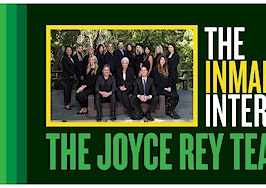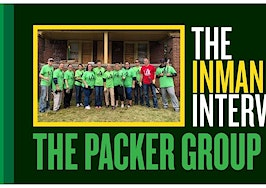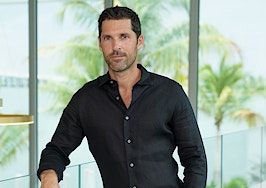 This July, Inman’s editorial theme is Teams — what it takes to build and join one, how to optimize your team for summer 2020, and even when to consider leaving one. And if you’re not already a subscriber to our Teams Beat email newsletter, sent every Thursday, sign up now.
This July, Inman’s editorial theme is Teams — what it takes to build and join one, how to optimize your team for summer 2020, and even when to consider leaving one. And if you’re not already a subscriber to our Teams Beat email newsletter, sent every Thursday, sign up now.

Marny Schlopy | Team Schlopy
Having worked for nearly 30 years as a real estate professional in Park City, Utah, Marny Schlopy knows that resort towns like hers have particularities not seen elsewhere, including a unique set of buyers and a market that operates totally differently from other non-resort markets.
“It’s a lifestyle choice.” says Schlopy, who started growing what would become her seven-member team in the 1990s. “It’s a totally different market — pandemic or not. It’s not a place where people are relocating to for businesses. You come here because you want to come here.”
Inman recently spoke with the team leader of Team Schlopy at Coldwell Banker about how she and her team have fared over the past few months and how her niche market has been impacted by the pandemic.
Inman News: When did you start your team, and why?
Schlopy: I started in real estate when we moved to Park City in 1992. And I started on a whole new career, had never done it and had really never knew anybody here, so it was nine months until I made my first sale. It was very hard work. You don’t know anybody and you come to an unfamiliar place, and you start a new thing where you’re commission only. I was working seven days a week — not much different from today, really — but then I was doing everything, carrying out the trash and all that.
As it progressed and I got successful, I didn’t have the time to do the paperwork. I’m a better sales person than dotting the i’s and crossing the t’s, so I decided it was time to get a part-time assistant. That was in 1995. And then I rolled into a full-time assistant at the end of the ’90s as my business picked up and I was doing 50, 60 deals a year.
When Park City hosted the 2002 Olympics, I just couldn’t keep up with the buyer demands. Buyers take so much time because they come into town, they want to see everything, and if you have listings you can’t pay attention to them, so my husband joined me as a buyer’s agent. Then we wanted my son-in-law to move to Utah to be close to us, so he joined us. Then we got two assistants: one listing coordinator and one under-transaction coordinator. Then our son joined us in 2016, and then I have another full-time protégé that joined five years ago.
Growing this way has allowed us to specialize in the places where we’re really good and then also to be able to have somewhat of a life. When you’re solo, or even solo with an assistant, real estate is a 24/7 business and you can never get away. So having a team really allows you to then totally detach, go away for a weekend and not even take your phone — the phone’s handed off to another team member.
Park City is obviously a big ski resort town. Do you think that being in a niche market has been a help, or on the other side, a hindrance, during the pandemic? Or neither?
Park City, because it’s a resort town, no one ever has to buy. It’s a lifestyle choice. People are successful here, so no one ever has to sell. It’s a totally different market — pandemic or not. It’s not a place where people are relocating to for businesses. You come here because you want to come here. And again, successful people feel like if they don’t get the price for their home, they don’t have to sell. And price, of course, is real estate 101.
During the pandemic, I would say that being a resort town was a hindrance because again, no one was getting transferred, no one had to buy. Everyone hunkered down. So it was like a spigot turned off when the resort closed, which was March 15. But, when we opened back up, when we moved into the orange phase and people were able to get out and wear masks and feel safe, since then we’ve been non-stop. [Ed. note: Utah has followed a color-coded phased reopening plan. The orange phase signifies “moderate risk.” During this phase, restaurants could reopen for limited dine-in services, personal services and retail could operate with the use of face coverings.]
In the resort business, it takes an average of two years when a buyer comes in to locate a property. We’ve worked with buyers as long as 6, 7, 8 years where we put them [in] a database and eventually they come buy. Now, we’ve had droves of people who want to get out of the big cities — no surprise — out of LA, Texas, Florida, New York, and they’re coming here because they don’t want to be stuck again. They want to be in a resort town.
And they’re looking at everything, so it takes three times as long to locate a property. We personally meet and greet the buyer, meet and greet the buyer’s agent — we’re there to sell our listings. Of course we couldn’t do that during the pandemic because we weren’t allowed to. So when it opened back up, we had 144 showings from June 1 to July 7 where we were present, and we only put two things under contract in that time frame. Since then, we’ve put about 10 things under contract.
But, the point was, we would show a house that would be $2.2 million, 7,000-square-feet, [and] to that same buyer, a new construction, $3 million, 3,000-square-feet. And it’s like, you either want a huge house that’s a fixer or you want a new construction, but they’re looking at everything. At one house, we had 29 showings before we generated an offer, and then we had multiple offers.
It’s a very interesting, it’s a different market that we’ve never seen before.
That sounds very challenging. What would you say has been the toughest part of all of this for your team?
Because there’s so many buyers in town and so much activity, the perception is that the market is hot. Well, the market is robust, but it’s not hot in the sense of people just flocking in and putting contracts down and closing them.
It’s robust because they’re out there, but buyers are not settled — they are frenzied. They don’t want to take a risk of making a bad decision, they just don’t know what to do. As a real estate agent, you have to accommodate whatever they want to see, and you’ve got to educate them in a short amount of time.
But the public looks at it as it’s a hot market. So the sellers are going, “Why isn’t my property going under contract? You’ve had 29 showings.” And we’re like, “This is different, you’ve got to be patient.” It’s a challenge.
What do you think differentiates your team from other teams in your region?
We’re a family business and we really care about each other. We have different personalities that go well together, but we can also match up those personalities with our clients. And we have systems in place. Eighty percent of our business comes from repeat clients, so we really take care of our clients. We treat them like family, too. We bring them into the fold if we like them — and we like most of them!
How is your team getting ready for the upcoming weeks and months?
It’s hard to know what to prepare when you don’t know what you’re preparing for. But, I think we did a good job when we were shut down. We incorporated a new database, and if we get shut down again, we’ll continue working on the database by reaching out to people that we haven’t reached out to for a while and make sure they’re OK and safe and still want our information. I think that was the biggest thing we did, and it worked well for us.
When you’re working so hard in the business, you don’t have time to work on the business. So having time to work on the business was productive. We did a lot of things we had never done before like virtual open house tours, and we’ll actually [continue those], even without a pandemic, for the outlying areas. We learned a lot. We really got into technology to keep exposing our listings to the world, and we’ll keep perfecting that.













